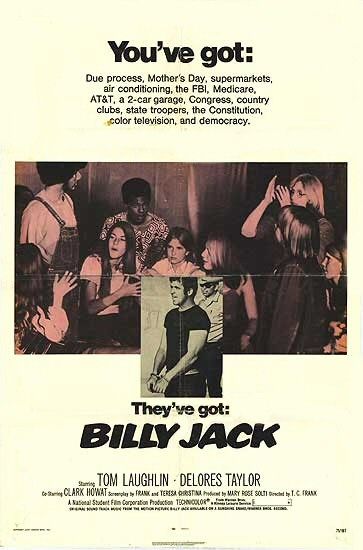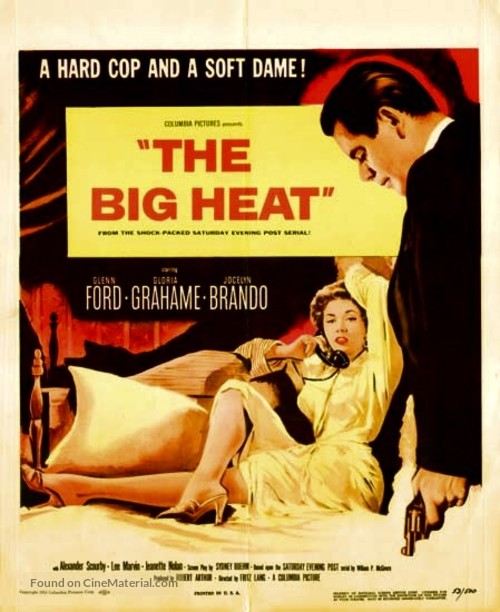Sunday, December 16, 2018
Saturday, December 15, 2018
REMEMBERANCE OF CHRISTMAS PAST 4
...THIS CAT SHAFT IS A BAD MOTHER....
Friday, December 14, 2018
I BLAME IT ON THE HOT PANTS
 |
| I recall seeing BILLY JACK (1971) a couple of times at the old Varsity Theater on the Drag in Austin when I was in high school. The first time was in the company of a young lady named Diane Howerton whom I went out with a few times. I remember that she wore a pair of the then popular "hot pants" shorts and I found it exceedingly difficult to keep my adolescent mind focused on the film. But when I did focus, I found BILLY JACK to be an amazingly profound film, full of messages about social justice, peace and love versus violence and hate, young vs. old, progressives against conservatives, hippies vs. straights, the generation gap, spirituality and way cool exhibitions of martial arts at the hands (and feet) of star Tom Laughlin. By the way, Laughlin also wrote, produced and directed BILLY JACK (there's an unsubstantiated rumor that he also made and served sandwiches to the cast and crew during lunch breaks). Produced on a shoestring budget, BILLY JACK grossed a pot load of money, making it one of the most successful independent films of the 1970s. And the biggest demographic buying those tickets were impressionable kids like me who thought the movie was an instant classic, ranking alongside WALKING TALL (1973) as one of the films that practically everyone at Austin High saw at least once. BILLY JACK was actually the second Laughlin production to feature half breed, Vietnam vet, martial artist and peaceful warrior Billy Jack. The first film, THE BORN LOSERS (1967) was marketed as a biker flick but it made enough money to allow Laughlin and his wife (and co-star/co-writer/co-producer) Delores Taylor to make BILLY JACK. The film was initially going to be an American International Pictures production and you can well imagine how that final product would have turned out. Next, the film was in production through 20th Century Fox whose executives wanted to dictate creative terms to Laughlin, who would have none of that. Warner Brothers finally agreed to back the film and I'm sure they were glad they did. Two sequels followed, THE TRIAL OF BILLY JACK (1974) and BILLY JACK GOES TO WASHINGTON (1977). I've never seen any of the other three Billy Jack films but I watched the 1971 entry this afternoon for the first time in forty-seven years. You'll have to forgive my fifteen-year-old self for thinking that BILLY JACK was a profound film. I simply didn't know any better and was probably caught up in the buzz among my classmates about how great the movie was. I was for sure distracted by those hot pants, which left an, as you can tell, indelible impression upon my memories of the film. BILLY JACK is one hot mess of a movie, a strident, preachy, rambling, overly earnest effort with a patchwork narrative and horrible acting (by both professionals and amateurs). The action scenes aren't nearly as well staged as I remembered them (any random episode of KUNG-FU had better martial arts fights) and the film is endlessly and needlessly padded with lame comedy improvisation shticks, bad "folk" songs, plot points that go nowhere (what the hell was the whole Billy gets bitten by a rattlesnake ceremony about?), a Chevy Corvette that survives being completely immersed in a mountain lake only to ride high and drive in the next scene, a now-you-see-it-now-you-don't gun rack in a vintage pickup truck and on and on. The story, such as it is, concerns a pregnant young runaway, Barbara (Julie Webb), who takes refuge from her abusive father, Deputy Mike (genre veteran Kenneth Tobey) in a freestyle "school" on an Indian reservation. The school, in which literally everything and anything goes, is run by Jean Roberts (Taylor) and protected from the bigoted townsfolk by Billy Jack. The stakes escalate when Jean is raped by the son of a powerful local business man. The son, Bernard (David Roya), later kills Martin (Stan Rice), a young Indian boy who is in love with Barbara. All of this ugly violence pushes Billy Jack past the breaking point. He kills Bernard and Deputy Mike and prepares to make his final stand in an abandoned church with Barbara at his side. While I found BILLY JACK to be a truly terrible film, I have to give props to Laughlin and Taylor for having the courage and determination to take control of this franchise from start to finish and bring their vision, no matter how cockeyed, to the screen. I dunno, maybe things got better in the third and fourth films but for my money, one BILLY JACK movie is enough for this movie watcher. Thumbs down. |
Tuesday, December 4, 2018
REMEMBERANCE OF CHRISTMAS PAST 3
Sunday, December 2, 2018
THE BIG HEAT
REMEMBERANCE OF CHRISTMAS PAST 2
Friday, November 30, 2018
REMEMBERANCE OF CHRISTMAS PAST 1
Thursday, November 22, 2018
THE PILGRIM PROJECT
 |
I did this one backwards.
I saw the film COUNTDOWN (1968) a few years ago (and posted a review here on the blog). Then I read the Dell Movie Comic adaptation of the film. Finally, I read THE PILGRIM PROJECT (1964), the original novel upon which the film was based. Probably should have read the book first, seen the film, then finished off with the comic. Regardless of the order of encounter, I've now experienced this story in the three media in which it appeared and, as usual, it's the original novel that stands out as the best.
The Pilgrim Project is a secret space program developed by NASA to send one astronaut to the moon in an old Mercury space capsule. Once on the lunar surface, the astronaut will take up residence in a previously launched shelter. He'll be resupplied with other landings for the time it takes to successfully launch a three man Apollo mission to the moon whereupon the lone astronaut will be rescued and returned to Earth. Sounds like a crazy plan, right?
Cockeyed as the Pilgrim Program is, it is scientifically proven to have a better than average chance of success if and when the United States ever has need to use it. Which probably won't ever happen. Until it does, when the Russians launch a one man mission to the moon from an orbiting Soviet space platform. Now, it's a race against time to find a volunteer, put him through rigorous training and send him on what could be a one way trip to the moon.
Author Hank Searls combines the hard science of 1960s NASA with political wrangling in the halls of Congress and the White House. The President and Vice-President are major players in the drama as is a powerful senator from California and an influential newspaper columnist. The German rocket scientist who devised the plan is terrified at the thought of actually going through with it while a Navy flight surgeon prematurely spills the beans about the program.
And then there is the man chosen for the mission, Steve Lawrence (what, no Edie Gorme?). Lawrence was played in the film by James Caan and here he's a conflicted man reluctant to leave his wife and son while at the same time feeling as if he has something to prove to his commanding officer and former Mercury astronaut known only as The Colonel (Robert Duval in the film).
There's plenty of plot twists and it's not a guarantee that the mission will even launch. But launch it does in the novel's final pages which find Lawrence desperately searching the desolate lunar surface for the pre-launched shelter. Does he find it?
Read THE PILGRIM PROJECT and find out. Thumbs up.
|






















